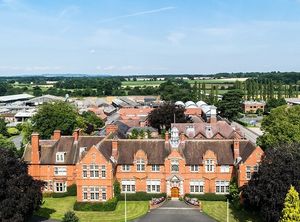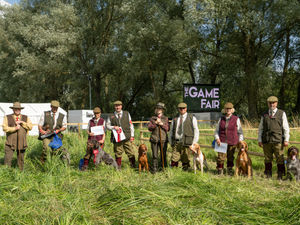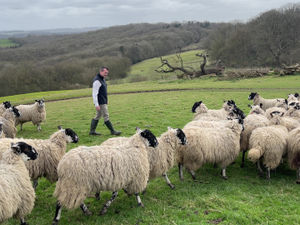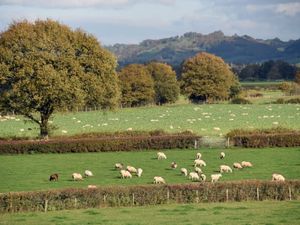Harper Adams study looks at transition to ‘Net Zero’ and impact on wildlife
Research backed by Harper Adams University and Morrisons will examine habitats on UK’s farms – and how the transition to ‘Net Zero’ could affect their value for wildlife.

A new PhD studentship for the University’s School of Sustainable Food and Farming will be supervised by academics, with Morrisons – one of the School’s founding partners – funding the post and offering its researcher access to supplier farms.
The post will see a research student working on three farms, each a WM Morrisons supplier with ambitions to achieve Net Zero carbon emissions through the adoption of a range of low emission measures.
They will develop measurements, and ultimately a tool, to describe the biodiversity of each of the farms, with the work also capturing how their journey to Net Zero affects each farm’s ability to support biological diversity.
The post will receive academic supervision by Harper Adams Deputy Vice-Chancellor Professor Michael Lee and Dr Julia Casperd, Lecturer in Wildlife Conservation, Environmental Land Management and Zoology, with Scott Kirby, Executive Project and Programme Consultant on the Harper Adams Future Farm as farm advisor.
The successful PhD researcher will use each farm as a tool to develop a simple, replicable and low cost tool for farmers to track the changes in biodiversity on their farms.
The study will particularly focus on how the adoption of technology, such as drones and electronic sensors able to measure biodiversity indicators such as pollen, could also be used by farmers who want to quantify on-farm biodiversity.
Dr Casperd, who also serves as Chair of the Harper Adams Environmental Sustainability Land and Soil Farm Group, said: “As we negotiate the current mass extinction event, with an estimated loss of 10,000 species per year, it has never been more important to focus on protecting nature.
“The UK Government’s newly published Environment Improvement Plan sets out its goals to do this by restoring and creating habitats across our UK landscapes to promote gains in biodiversity.
“Its ambitious target is to halt the decline in species abundance by 2030 and restore or create 500,000 ha of wildlife rich habitats outside protected sites.
"With more than 70% of land in the UK used for agriculture, there is an inherent emphasis on farmed land, reducing the impact of human activity which has led to habitat loss and global warming by working with landowners and farmers to adopt nature friendly farming.
“This PhD aims to explore how sustainable farming systems, adopted in the process of transitioning to carbon Net Zero by reducing harmful greenhouse gas emissions and offsetting their carbon footprint, influence biodiversity.
“It will exploit the fantastic agri-tech and interdisciplinary opportunities and facilities provided by Harper Adams University to design simple ways to measure on-farm biodiversity.
“These will feed into a simple-to-use tool for farmers and landowners to accurately determine the level and value of their natural assets. This will be an important resource as farms increasingly look to develop alternative income streams from ecosystem services such as carbon nutrients and biodiversity units.”
To find out more, visit: harper.ac.uk/netzerophd before April 16.





